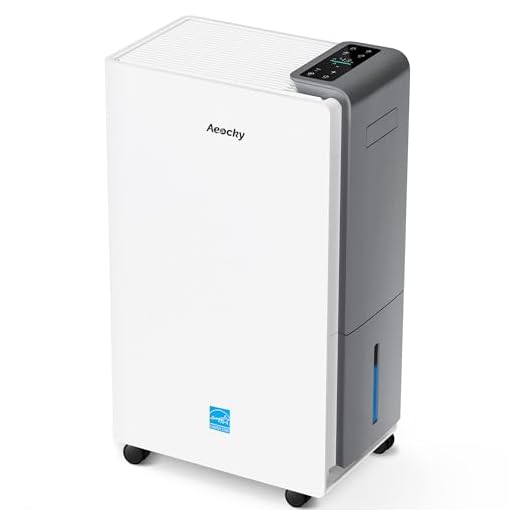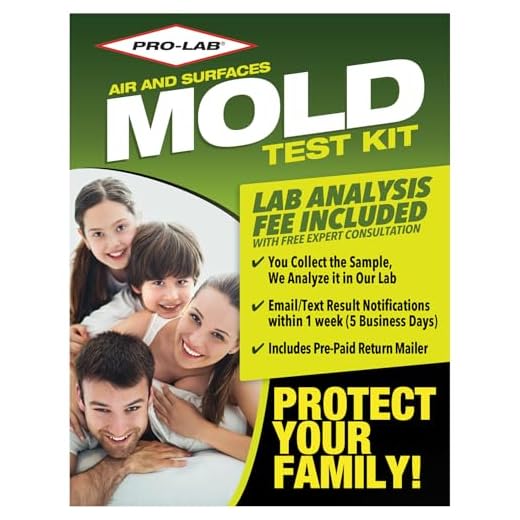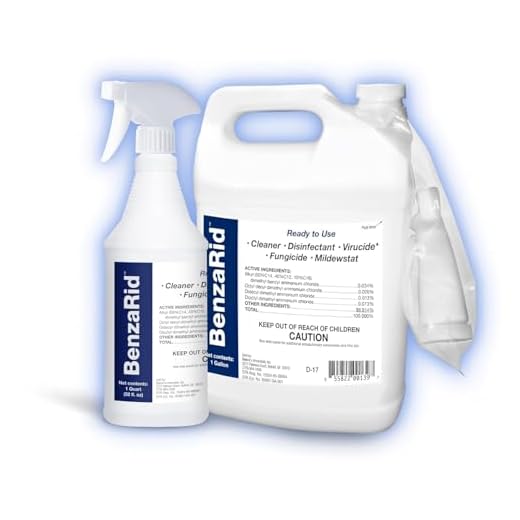



When encountering a musty aroma in your living space, it’s crucial to identify its source. This scent often arises from specific types of fungi, which can be mistaken for other odors, including those associated with pets. If you detect a pungent, earthy fragrance, it might be a sign of a fungal presence rather than an indication of your furry friend’s habits.
To differentiate between these odors, pay attention to the characteristics. The musty smell of certain fungi tends to be damp and stale, whereas the scent from a pet has a sharper, more ammonia-like quality. Conducting a thorough investigation of your environment, including checking for damp areas or visible signs of growth, can help pinpoint the issue. If you suspect the presence of fungi, consider consulting with a specialist for proper identification and remediation.
Maintaining a clean and dry environment is key to preventing these odors. Regularly inspect spaces prone to moisture, like bathrooms or basements, and ensure proper ventilation. If you find any signs of fungal growth, addressing it immediately can help restore freshness to your home.
Does Mold Smell Like Cat Urine?
It’s common for humans to confuse certain odors. The scent produced by certain fungi can resemble what a feline might leave behind. If you notice an unpleasant aroma that reminds you of a litter box, it’s important to address it quickly. Take the following steps:
1. Identify the Source: Check for damp areas in your home. Look behind furniture, in basements, or any space that may retain moisture.
2. Inspect for Growth: Look for dark patches on walls or ceilings. If you find any, it indicates a need for cleaning and possible removal.
3. Ventilation: Ensure good airflow in all areas, especially where you suspect an issue. Open windows and use fans to help eliminate odors.
4. Cleaning Solutions: Use a mixture of water and vinegar or a specialized cleaner to tackle any affected spots. Scrub thoroughly, then dry the area completely.
5. Monitor Humidity: Keep relative humidity below 60% to prevent recurrence. Dehumidifiers can be beneficial in damp regions.
6. Professional Help: If the scent persists despite your efforts, consider consulting a specialist. They can identify hidden problems that may not be visible.
By taking these actions, you can ensure your space remains fresh and pleasant, free from any unwelcome reminders of a litter box.
| Action | Details |
|---|---|
| Identify Source | Check damp areas in your home. |
| Inspect for Growth | Look for dark patches on surfaces. |
| Ventilation | Improve airflow by opening windows. |
| Cleaning Solutions | Use vinegar or specialized cleaners. |
| Monitor Humidity | Keep humidity below 60%. |
| Professional Help | Consult a specialist if needed. |
Identifying Odors: Fungi vs. Pet Waste
When trying to distinguish between the scent of fungi and that of pet waste, you should focus on the specific characteristics of each. The odor from fungi often has a musty, earthy, or damp quality, while pet waste carries a sharper, more pungent aroma. If you notice a damp smell in a space that has moisture issues, it’s likely related to fungal growth.
To verify the source, examine the area closely. Look for visible signs of growth or discoloration on walls, ceilings, or any damp surfaces. Conduct a sniff test, but remember that fungi can vary in scent depending on the type and environmental conditions.
If you’re unsure, consider using moisture detection tools to check for hidden dampness behind surfaces. Addressing any excess moisture will not only help in identifying the issue but also prevent further problems. For those maintaining outdoor spaces, understanding equipment efficiency, such as whether are brushless lawn mowers better, can also play a role in keeping your environment dry and less prone to growth.
In situations where you suspect a problem, it’s best to consult with professionals who can provide accurate assessments and solutions tailored to your needs.
Common Types of Mold and Their Odors
Identifying different varieties of fungi by their distinct scents can be essential for maintaining a healthy environment. Here are some common types and their unique fragrances:
Aspergillus
This type often emits a musty, earthy aroma. It’s commonly found in damp areas and can thrive on food products. If you notice an odor resembling wet socks or old wood, it might be Aspergillus.
Penicillium
Characterized by a sweet, fruity scent, Penicillium can sometimes be mistaken for overripe fruit. It’s often found on spoiled food and in humid spaces. Be cautious if you detect this aroma, as it can indicate the presence of this mold.
For those with pets, it’s vital to keep your surroundings clean and free from any potential hazards. If you’re dealing with outdoor issues, consider using traps for feral cats to manage unwanted animals that might contribute to uncleanliness.
Cladosporium
This variety typically gives off a more pungent, damp smell. Often found in air conditioning systems or on carpets, it can be quite noticeable in areas with high moisture levels. If the air feels heavy and has a strong, stale scent, this might be the culprit.
Keeping an eye out for these specific odors can help in taking timely action against any unwanted growth in your living space. Always prioritize a clean and safe environment for both you and your furry friends.
Factors Affecting the Perception of Fungal Odors
Humidity plays a significant role in how distinct odors are detected. Higher moisture levels can intensify the scent, making it more noticeable. I recommend keeping spaces dry to help manage any unpleasant aromas.
Temperature also influences odor strength. Warmer environments can enhance the release of volatile compounds, making them more potent. Maintaining a cooler atmosphere can help reduce this effect.
The type of materials present in a space can contribute to how odors are perceived. Organic materials, such as wood or fabric, can absorb and retain scents, amplifying the experience. Regular cleaning and using odor-neutralizing products can mitigate this issue.
Individual sensitivity varies from person to person. Some may detect certain scents more acutely than others. If you notice a strong aroma, consider consulting with those around you to see if they share your perception.
Ventilation is key. Proper airflow helps disperse odors, reducing their intensity. I suggest ensuring spaces are well-ventilated to maintain a fresher environment.
Lastly, psychological factors can influence how an odor is interpreted. Past experiences and associations can shape how I perceive certain scents. Being aware of these biases may help in identifying the source more accurately.
How to Test for Mold in Your Home
Grab a flashlight and check dark corners, basements, and areas near water sources. Look for any discoloration or fuzzy growth on surfaces.
Use a damp cloth to wipe suspicious spots. If the cloth picks up a dark residue, that could indicate the presence of unwanted growth.
Consider purchasing a testing kit from a local hardware store. Follow the instructions carefully to collect air or surface samples for analysis.
Pay close attention to any musty odors when you open cabinets or storage spaces. This can signal hidden issues.
If you suspect a problem, don’t hesitate to reach out to a professional for a thorough inspection. They have tools and expertise to identify hidden dangers.
Keep an eye on humidity levels in your home. Using a hygrometer can help you monitor moisture and prevent unwanted developments.
Document any findings with pictures and notes. This will help if you need to take further action or consult with specialists.
Steps to Remove Fungi and Eliminate Odors
First, gather your supplies: gloves, a mask, a scrub brush, and a solution of water mixed with vinegar or a commercial cleaner specifically designed for eradication.
1. Identify Affected Areas
- Inspect areas prone to dampness: bathrooms, kitchens, and basements.
- Check behind furniture and inside cabinets.
2. Prepare the Environment
- Ventilate the space by opening windows and using fans.
- Seal off the area to prevent spores from spreading.
3. Clean the Surfaces
- Apply the cleaning solution liberally to affected spots.
- Scrub thoroughly with a brush to lift any residues.
- Rinse the area with clean water and dry completely.
4. Deodorize
- Use baking soda to absorb lingering odors, sprinkling it on surfaces and leaving it for several hours before vacuuming.
- Consider using an air purifier with a HEPA filter to capture any remaining particles.
5. Prevent Future Issues
- Monitor humidity levels with a dehumidifier.
- Regularly inspect areas for any signs of moisture or growth.
- Ensure proper ventilation in all rooms to keep air circulating.
Following these steps will help maintain a fresh and clean environment, minimizing any unpleasant scents and keeping unwanted growth at bay.
When to Call a Professional for Mold Issues
If you notice persistent odors that resemble ammonia or a musty scent in your home, it’s time to seek expert help. Ignoring these signs can lead to health risks and damage to your living space.
Signs Indicating Professional Assistance is Needed
Look for visible growths, especially in damp areas like bathrooms or basements. If you experience respiratory issues, allergies, or skin irritations that worsen indoors, consult a specialist. Additionally, if the affected area exceeds ten square feet, it’s best to bring in a professional.
Why DIY Might Not Be Enough
Many homeowners underestimate the extent of the problem. A thorough inspection and testing are crucial to identify hidden colonies. Professionals have access to advanced tools and methods to ensure complete remediation, which DIY efforts may not achieve. Relying on experience and expertise can prevent further complications.
In conclusion, timely intervention is key. Don’t hesitate to contact a qualified technician to handle serious issues. Safety and health should always be the priority.
FAQ:
Does mold smell like cat urine?
Yes, mold can sometimes produce an odor that is reminiscent of cat urine. This is often due to the presence of certain types of mold, such as those in the Aspergillus or Penicillium families. The smell can vary depending on the specific type of mold and the conditions in which it is growing. It is important to identify the source of the smell, as it may indicate a mold problem that needs to be addressed.
What are the signs that mold is present in my home?
Aside from the smell, there are several indicators that mold might be present. Look for visible mold growth on surfaces, especially in damp areas like bathrooms, kitchens, or basements. You may also notice water stains on walls or ceilings, peeling paint, or an increase in allergy symptoms among residents. If you suspect mold, it’s advisable to conduct a thorough inspection or hire a professional to assess the situation.
How can I differentiate between mold smell and cat urine smell?
Distinguishing between mold and cat urine odors can be challenging, but there are some clues to help. Mold smells tend to be musty and damp, while cat urine has a sharper, more pungent scent. If you notice a persistent smell that resembles cat urine, especially in areas prone to moisture, it’s worth investigating for mold. Conducting a smell test in various areas where mold typically grows can also help clarify the source of the odor. If unsure, consider consulting a professional for a definitive assessment.












